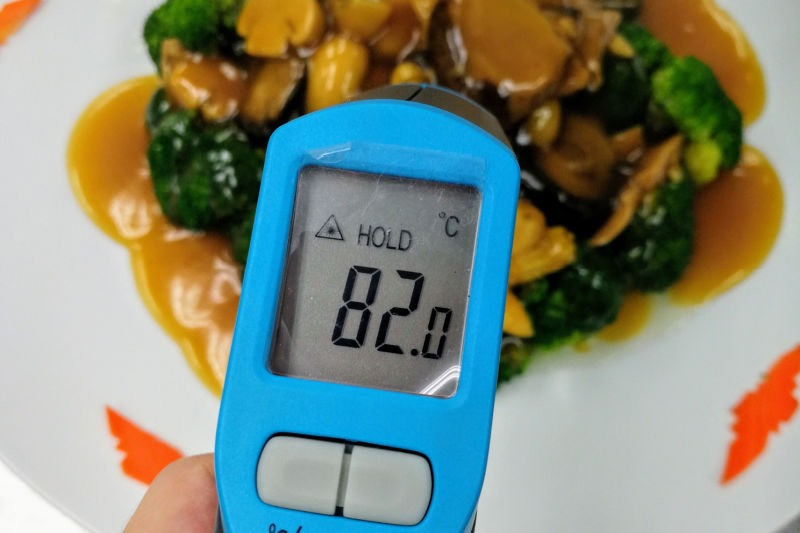Food safety tips and practises are pivotal in safeguarding our health and well-being. Ensuring the food’s safety is essential to prevent foodborne illnesses and maintain a healthy body. From harvesting to consuming various types of food, every step in the food chain matters in upholding food safety. So, consider keeping your food safe on this world food safety day!
What you need to know:
- Importance of food safety
- Understanding foodborne illnesses
- Food safety tips for consumers
- Food safety tips for restaurants and food service establishments
Importance of food safety
Food is the most basic necessity for any human being. According to WHO, almost 1 out of every 10 people worldwide suffer from diseases caused due to contaminated food. In addition, more than 545,000 people die from foodborne illnesses each year. As a result, food safety tips and practices are essential for everyone. Nowadays, several restaurants strictly follow specific food safety tips and programs to ensure food is handled healthily. Healthy food safety guidelines can benefit you in multiple ways. Let’s discuss them.
- Proper food safety can reduce the risks of you getting sick from foodborne illnesses.
- It improves public health and reduces the pressure on the healthcare system.
- Food safety also reduces the risk of nutritional deficiencies
- Optimal food safety guidelines can ensure that you never get affected by chronic illnesses engendered by contaminated food.
Understanding foodborne illnesses

Foodborne diseases are caused by consuming contaminated food. Several pathogens, including bacteria, viruses, or toxins, contaminate the food during production or storage, causing several illnesses. As a result, it’s vital to follow general food safety tips and food safety guidelines.
Common causes of foodborne illnesses
Here are some of the leading causes of foodborne illnesses:
- Bacterial and viral contamination: Bacteria are one of the leading causes of foodborne diseases. Pathogens like hepatitis-A, salmonella, e coli, and campylobacter can contaminate food through improper handling or inadequate cooking.
- Toxins and chemical contamination: Certain toxins and chemicals, toxins in seafood, can contaminate food and cause foodborne illnesses. Additionally, improper handling and storage of food can lead to chemical contamination.
Symptoms and risks associated with foodborne illnesses

Here are some of the symptoms and risks associated with foodborne illnesses. Let’s understand them better below:
- Gastrointestinal stress: Foodborne diseases can cause nausea, vomiting, diarrhoea, and abdominal cramps, making you feel quite unwell.
- Fever and fatigue: Many foodborne illnesses cause fever and fatigue as your body fights off the infection caused by the pathogens in contaminated food.
- Muscle aches and headaches: Some foodborne illnesses can cause muscle aches and headaches, making you feel weak and uncomfortable.
Food safety tips for consumers
Here are some of the best food safety tips that you can follow to keep foodborne illnesses at bay:
- Fresh is best: Purchase fresh ingredients from reliable sources and store them at the right temperature to prevent bacterial growth.
- Thoroughly wash fruits and vegetables: Rinse fruits and vegetables under running water to remove dirt, pesticides, and other contaminants. Cooking them further reduces the risk of ingesting harmful microorganisms.
- Cook food adequately: Properly cook all food items, especially meat, poultry, and seafood. Cooking in high temperatures for a long time kills harmful bacteria and reduces the risk of foodborne illnesses.
- Practice safe food handling: Keep raw and cooked foods separate during storage and preparation to prevent cross-contamination.
Food safety tips for restaurants and food service establishments

Preparing food in an unhealthy way can cause many food-borne illnesses. As a result, restaurants and eateries must follow food safety guidelines and tips to ensure that their customers will be safe. Making food safe can stop consumers from getting sick in the monsoon season. Let’s understand some food safety tips for restaurants and fast food brands.
- Train staff on hygiene: Educate employees on proper handwashing techniques, wear clean uniforms, and maintain personal hygiene to minimise the risk of cross-contamination.
- Choose a healthy food serving area: Ensure food is handled with clean utensils and served using clean containers. Encourage the use of gloves and clean uniforms to minimize the risk of contamination.
We hope these food safety tips help you to avoid foodborne illnesses. Moreover, they can aid you in making this place better this world food safety day!
Stay tuned to the Activ Living Community. Keep up to date with the latest health tips and trends through expert videos, podcasts, articles, and much more in nutrition, fitness, mindfulness, and lifestyle conditions like Asthma, Blood Pressure, Cholesterol, and Diabetes.
You may also be interested in the following blogs:
- Good Riddance To Foodborne Diseases! Follow These 3 Summer Food Safety Tips
- What Are Foodborne Illnesses And What Are The Foods That Cause Food Poisoning?
Popular Searches
How to lower blood pressure | Fruits good for liver | Unhealthy foods | Ragi Benefits | Basal Metabolic Rate | Acupressure points for High Blood Pressure | Ayurvedic medicine for blood pressure | How to control cholesterol at home | Homeopathy for Asthma | Biological Age | Home remedies for TB | Natural beta blockers | Negative effects of internet | Types of walking | Blood pressure calculator | Blood sugar calculator | BMI Calculator





 1800-270-7000
1800-270-7000








